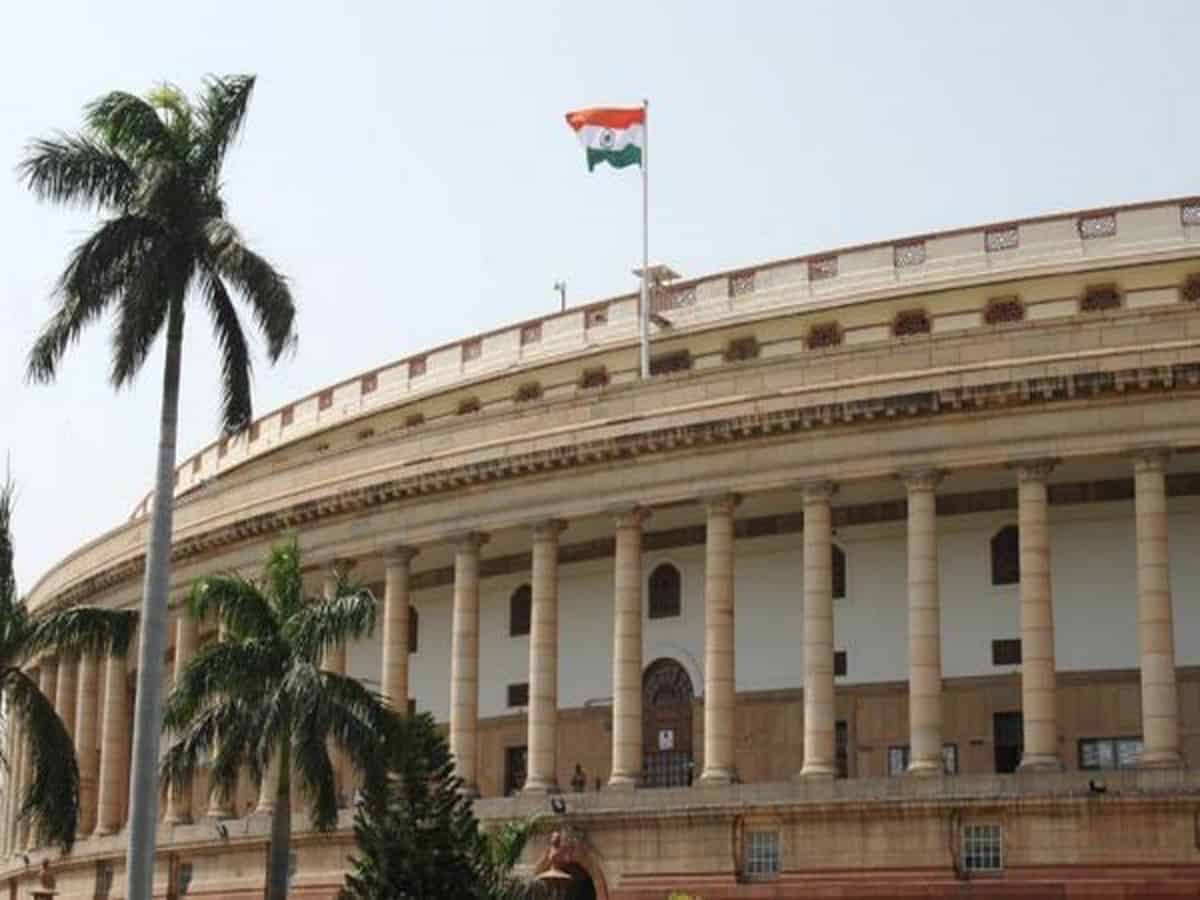New Delhi: A bill to abolish some tribunals where public at large is not litigant was introduced in the Lok Sabha by Minister of State for Finance Anurag Singh Thakur on Wednesday.
The government proposes to wind up five tribunals, including Airport Appellate Tribunal, Authority for Advance Rulings and Intellectual Property Appellate Board.
Besides, Appellate Tribunal under the Cinematograph Act and Plant Varieties Protection Appellate Tribunal will be abolished.
The proposed Bill seeks to amend the Cinematograph Act, 1952, the Customs Act, 1962, the Airports Authority of India Act, 1994, the Trade Marks Act, 1999 and the Protection of Plant Varieties and Farmers’ Rights Act, 2001 and certain other Acts.
“With a view to streamline tribunals, the Tribunals Reforms (Rationalisation and Conditions of Service) Bill, 2021 is proposed to be enacted to abolish certain tribunals and authorities and to provide a mechanism for filing appeal directly to the commercial court or the High Court, as the case may be,” the statement of objects and reason said.
Observing that these tribunals only add to another additional layer of litigation, it said having separate tribunal requires administrative action in terms of filling up of posts and such other matters, and any delay in such action further delays disposal of cases.
“Reducing the number of tribunals shall not only be beneficial for the public at large, reduce the burden on public exchequer, but also address the issue of shortage of supporting staff of tribunals and infrastructure,” it said.
The Bill proposes the transfer of all cases pending before such tribunals or authorities to the Commercial Court or the High Court on the appointed date.
The bill also has laid down severance terms for the Chairman and Members of such tribunals and they will be entitled to claim compensation not exceeding three months’ pay and allowances for the premature termination of term of their office or of any contract of service.
The Government of India began the process of rationalisation of tribunals in 2015. By the Finance Act, 2017, seven tribunals were abolished or merged based on functional similarity and their total number was reduced to 19 from 26.
The rationale followed in the first phase was to close down tribunals which were not necessary and merge tribunals with similar functions.
In the second phase, analysis of data of the last three years has shown that tribunals in several sectors have not necessarily led to faster justice delivery and they are also at a considerable expense to the exchequer, it said.
“Therefore, further streamlining of tribunals is considered necessary as it would save considerable expense to the exchequer and at the same time, lead to speedy delivery of justice. Accordingly, it is proposed to abolish some more tribunals and transfer the jurisdiction exercised by them to the High Court,” it said.

